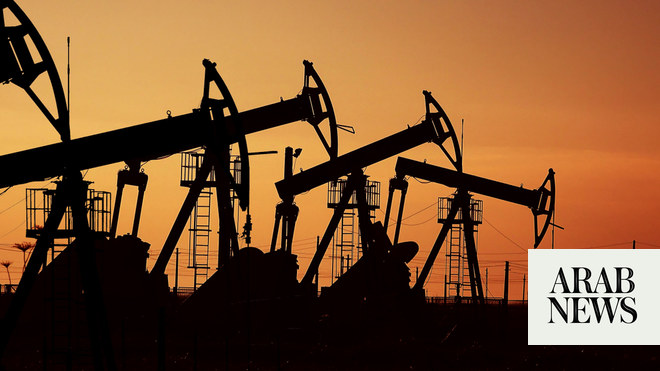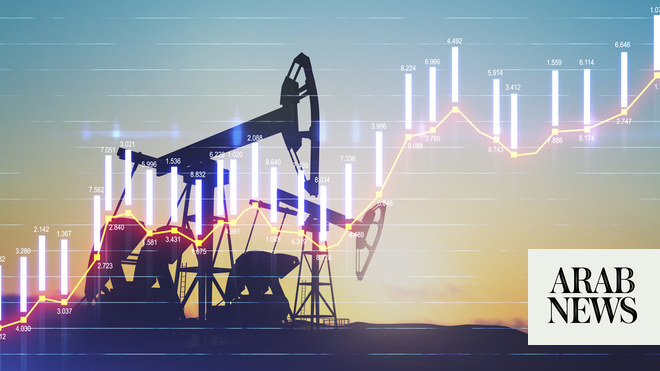
LONDON: Oil prices rose on Monday as investors focused on a tighter supply outlook after Moscow issued a temporary ban on fuel exports while remaining wary of further rate hikes that could dampen demand, according to Reuters.
Brent crude futures climbed 69 cents, or 0.7 percent, to $93.96 a barrel by 9:46 a.m. Saudi time after settling 3 cents lower on Friday.
US West Texas Intermediate crude futures extended gains for a second session, trading at $90.57 a barrel, up 54 cents, or 0.6 percent.
“Crude oil prices have started the week on the front foot, as the market continues to digest Russia’s temporary ban on diesel and gasoline exports, into an already tight market, offset with the Fed’s hawkish message that rates will stay higher for longer,” IG Markets analyst Tony Sycamore said.
Both contracts fell last week, snapping a three-week winning streak, after a hawkish Federal Reserve stance rattled global financial sectors and raised oil demand concerns.
Prices had rallied more than 10 percent in the previous three weeks on forecasts of a wide crude supply deficit in the fourth quarter after Saudi Arabia and Russia extended additional supply cuts to the end of the year.
Last week, Moscow temporarily banned gasoline and diesel exports to most countries in order to stabilize the domestic market, fanning concerns of low supply especially for heating oil as the Northern Hemisphere heads into winter.
“The Russian fuel export ban news appears to be priced in for the time being but the undercurrent of global oil supply tightness runs deep, with an intense focus on diesel shortages and fears over unanticipated LNG (liquefied natural gas) supply disruptions likely to persist, especially in the European markets,” said Vandana Hari, founder of oil market analysis provider Vanda Insights.
In the US the number of operating oil rigs fell by eight to 507 last week, their lowest since February 2022, despite higher prices, a weekly report from Baker Hughes showed on Friday.
Expectations of better economic data this week from China, the world’s largest crude importer, also lifted sentiment. However, analysts flagged that oil prices face technical resistance at the November 2022 highs that were hit last week.
The Asian country’s manufacturing sector is expected to return to expansion mode in September, with the purchasing manufacturing index forecast to rise above 50 for the first time since March, Goldman Sachs analysts said.
In a positive sign, China’s oil demand increased 0.3 million barrels per day to 16.3 million bpd last week, partly due to a gradual recovery in jet fuel demand for international flights, they added.











